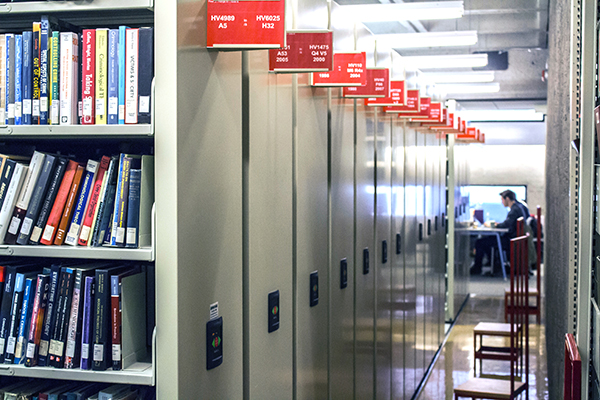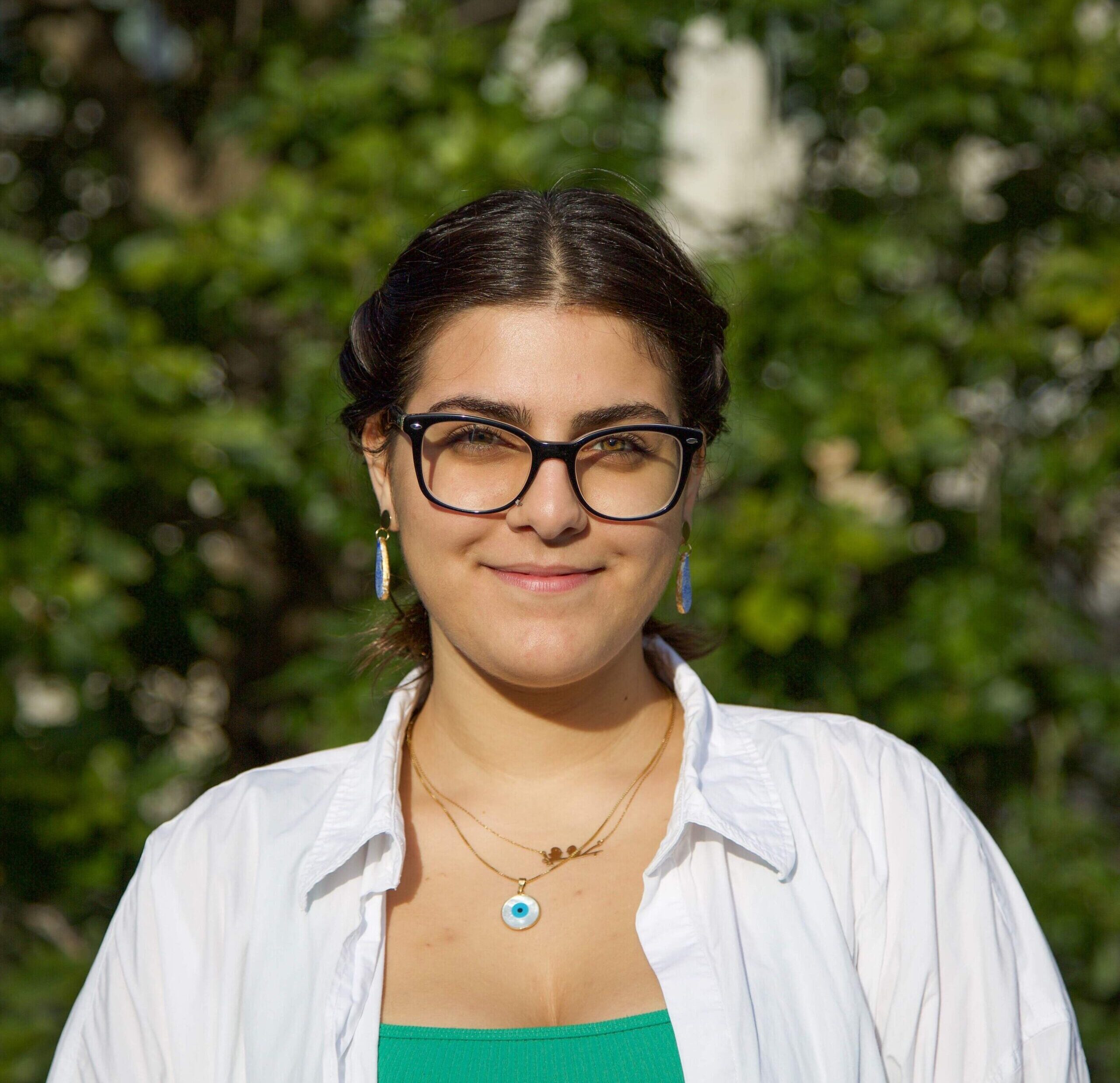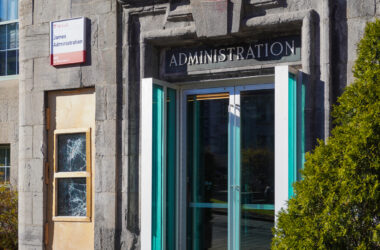McGill introduced a series of updated COVID-19 policies and initiatives late October and early November, including a vaccine passport requirement for entering libraries, an updated self-assessment form, and a rapid COVID-19 testing project. The updated protocols accompany the university’s transition from “emergency response” to “recovery and resumption.”
As of Oct. 27, all individuals entering McGill libraries are required to present their vaccine passport and valid McGill Identification Card (ID). To expedite the process, McGill has initiated the Fast-Pass program, where fully vaccinated students can acquire a small red sticker placed on McGill IDs to mark their vaccination status and bypass the need to present their VaxiCode to safety ambassadors at entrances.
Claire Downie, Students’ Society of McGill University (SSMU)’s vice-president (VP) of university affairs, told The McGill Tribune that she is pleased with the new policy, but that she has concerns about the Fast-Pass stickers.
“I question the rollout of [the Fast-Pass program],” Downie said. “It was a little confusing. There was a huge delay in notifying students, and the stickers being used are not very secure. They are [small] paper stickers when we thought they would be […] harder to replicate.”
In a statement sent out to the McGill community on Nov. 4, Deputy Provost Fabrice Labeau declared the university will no longer require faculty, staff, and student employees to complete the Minerva self-assessment form prior to visiting campus. Instead, they will be asked to review a self-evaluation webform.
In September, SSMU demanded that the university confers with students in COVID-19 protocol decision-making. Yet, Downie claimed that SSMU was not consulted about the changes addressed in Labeau’s statement.
“Truthfully, we didn’t hear about this change until the email was sent out,” Downie said. “But […] with a lot of those forms, they are not really monitored. Everyone is supposed to fill them out before they come to campus, but in reality there aren’t really any repercussions for [those who] don’t.”
Frédérique Mazerolle, a McGill media relations officer, explained that the new webform will help students assess whether they should be coming to campus or not.
“This form does not collect data but directs anyone experiencing COVID-19 related symptoms to the necessary follow-up steps,” Mazerolle wrote in an email to the //Tribune//. “If individuals answer ‘yes’ to any of the questions, they will be given follow-up actions.”
Kennedy McDiarmid, U0 Arts, is in favour of vaccine passports to access libraries, though she remains apprehensive about McGill’s reliance on self-assessment surveys.
“I think that the vaccine passport at the libraries is a good thing,” McDiarmid said. “I do not really see a point in [self-assessment] forms, because I think people are pretty good at identifying when they are sick.”
Since the beginning of the semester, SSMU has protested McGill’s refusal to mandate vaccines for students and faculty. Downie stressed that a vaccine mandate for students and faculty is still crucial, despite McGill’s 94.9 per cent vaccination rate.
“I still believe that a vaccine mandate would have been the best way forward,” Downie said. “Our [vaccination] rate is close to 95 per cent, which is really great. But at comparable institutions, like Queens [and] the University of Toronto, their [vaccination] rates are above 98 per cent. That three per cent difference is potentially thousands of students.”
Effective Nov. 8, students, faculty, or staff members can receive a rapid COVID-19 antigen detection test on campus. The test results appear within 20 minutes. However, they cannot be used as proof of a negative test and need to be confirmed with a PCR test.
“This pilot project is not intended to replace existing health measures for McGill, such as masking and distancing,” Mazerolle explained. “As with all University planning since the beginning of the pandemic, we are following public health directives and evaluating the evolving situation.”











The diction in this piece is impeccable, errorless, awe-inspiring. If I could have dinner with anyone, dead or alive, it would be Azizi.